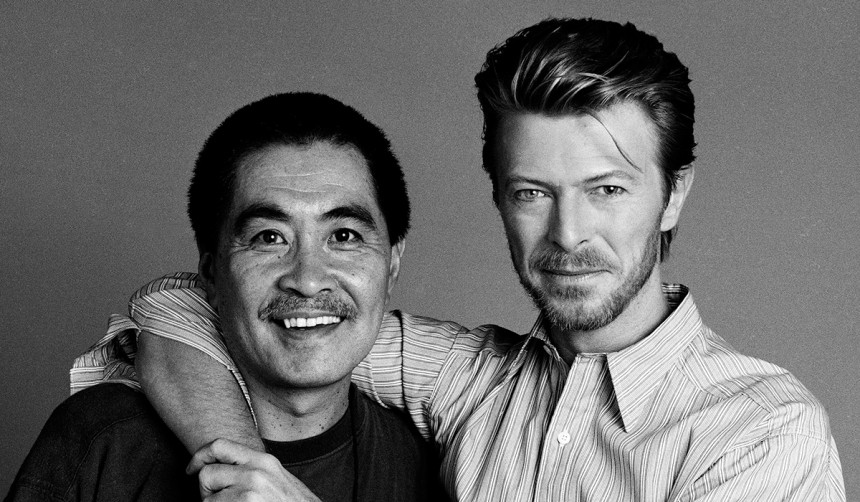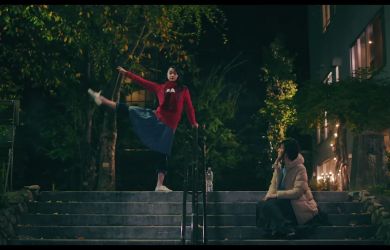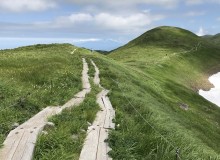
February 5, 2016
Masayoshi Sukita on Bowie
The photographer reflects on collaborations with the icon
How did you first come to work with David Bowie?
It was 1972 and I had traveled to London because I really wanted to photograph T.REX. At that time, I wasn’t even aware David Bowie existed. After finishing the shoot with T.REX, I saw a poster of Bowie in the street and instantly became intrigued. It was black-and-white and showed him performing an impressive high kick (the photo was used on the sleeve of The Man Who Sold the World). I didn’t realize it was a poster of a rock star. I just remember thinking “What is this?” Later I did some research and discovered it was promoting a concert for Bowie and Lou Reed. Having been inspired by this poster, I decided that I really wanted to photograph Bowie and raced to the Royal Albert Hall. Clutching my portfolio, I was just about to ask if I could work with him when he noticed my photos and thankfully agreed to do a photo session with me. That was my first achievement in London.
You photographed Bowie for his iconic Heroes LP cover. Where did you get the idea for this concept?
Actually, we never intended for the photo on the cover of Heroes to be used on the front of the album. In 1977, David came to Japan to promote Iggy Pop’s new album that he had produced. He didn’t come to Japan to tour, so he actually had some free time. I asked if he would mind doing a session with me, and he agreed to come to my Tokyo studio. I photographed Bowie for one hour and Iggy for one more. I chose 10-20 photos that I liked from that day and sent them to Berlin, where Bowie was living at the time. It was several months later when I got the call to ask for permission to use the photo on the cover for Heroes. He had chosen my favorite photograph from that day, so of course I agreed immediately.
Bowie made many changes over the years as an artist, both musically and visually. How did your art change with him?
I think he definitely influenced my portrait work. In the ’60s, before I photographed Bowie, I worked as a photographer for men’s fashion. After taking Bowie’s picture in ’72, I had many opportunities to photograph him; but his performances, his fashion … David Bowie had an amazing aura in front of the camera. Since that first session in ’72, I continued to capture him on several other occasions. But to be honest, I don’t think I really understood Bowie that first time. In ’77, when I shot the photo for Heroes, I was desperate to capture his unique aura and his quick movements. My real memory of that day is watching him change his pose continuously and feeling like I had to keep taking as many photos as I could so as not to lose the moment. After that day, I took a lot of other people’s portraits; but I never asked them to do this pose or that pose. I always try to capture the artist’s own movements and gestures by keenly observing their worldview. So I believe he changed the way I take photos of people.
Is there anything uniquely Japanese in your work with Bowie?
There is an instrumental piece called “Moss Garden” on the Heroes LP, and it is said that the song is about Saihō-ji temple in Kyoto. David loved Kyoto and had visited there many times, so I think he was inspired by his trips when he was writing that song. Saihō (‘moss’), just like grass, takes a very long time to grow. When you go to London, you see beautiful lawns; and just like the saihō in Kyoto, you feel this “passing of a long time.” I think David wanted to express, in his own way, the “passing of a long time’’ that he had felt from Saihō-ji, Kyoto, and from Eastern culture in general. The song ends with the distant sound of a jet. And when I hear that, I get this feeling that he wanted to convey his journey back to the present, after a long journey back from time itself.
What do you think is Bowie’s greatest legacy in Japan?
Since David passed away, people have truly realized his greatness. But I don’t think that it is just in Japan that people felt like this. I believe that the whole world will be influenced by the legacy Bowie leaves behind. I think he has influenced me as well, but I’m not sure I can answer how his death will affect me yet. I’m still trying to come to terms with it and find the answer.







